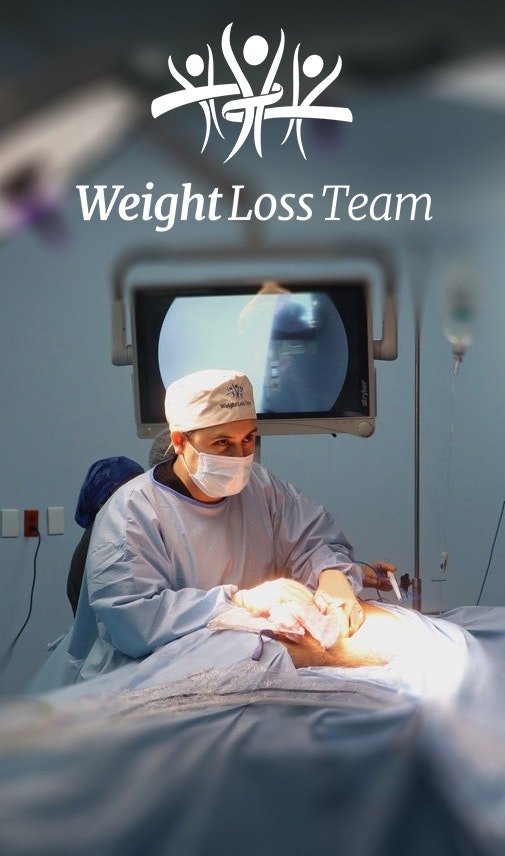Gastric Bypass Surgery: Procedure, Recovery and Risks
 Gastric Bypass Surgery is one of the most common bariatric surgery options for overweight people looking to lose weight and change their lives. This surgery is also known as the Roux-en-Y Gastric Bypass surgery and is still considered the gold standard of weight-loss surgeries by many experts. Many patients however ask, what is gastric bypass surgery? What are the risks, procedures, and recovery like... In this article, we will go over more information about RNY surgery?
Gastric Bypass Surgery is one of the most common bariatric surgery options for overweight people looking to lose weight and change their lives. This surgery is also known as the Roux-en-Y Gastric Bypass surgery and is still considered the gold standard of weight-loss surgeries by many experts. Many patients however ask, what is gastric bypass surgery? What are the risks, procedures, and recovery like... In this article, we will go over more information about RNY surgery?
The RNY surgery is a viable surgery option for obese people who are 100 plus pounds overweight and find it extremely difficult to lose weight with exercise, diet, and or medication. It is also the bariatric choice for patients with a BMI of 45 or more.
Gastric Bypass Surgery uses restrictive and malabsorptive techniques to obtain a successful weight loss result. This means that the procedure controls the amount of food the patient consumes and malabsorption promotes more weight loss by not allowing the body to absorb the calories of the food that is eaten. Gastric bypass surgery involves the creation of a pouch in the stomach chamber, leaving only a small area for food collection. Then after the creation of the pouch, the doctor will remove about 1 and ½ meters of the small intestine thus having the food pass into the lower section of the small intestine triggering the malabsorption required for weight loss. As such not only does the gastric bypass help with the amount of food consumed by the patient but achieves a great deal of weight loss through the malabsorption process.
Obviously, as with any weight loss surgery, Gastric Bypass carries some risks and complications can occur. Here are some of the known risks and complications from an RNY Gastric Bypass surgery:
- Anastomosis (one of the most serious complications) is caused due to the new connections of the patient’s intestines and stomach which in a few instances might not fully heal and will cause a leak
- Infection
- Blood clots
- Internal bleeding
- Reduction in the number of vitamins and minerals the body absorbs requires strict supplementation and vitamin level monitoring
- Dumping syndrome (taking in too much sugar)
- Breakage
- Hernia
- Perforation of stomach and or intestines
- Gallstones
- Pouch obstruction
- Stricture
- The RNY Gastric Bypass is known to have a higher amount of risks and complications as well as negative side effects than any other weight loss surgery. For example, the RNY has about a 3% complication rate whereas the gastric sleeve has less than a 1% complication rate.
Of course, there are other complications not listed above, but these are some of the most common issues regarding gastric bypass surgery.
A patient’s recovery from Gastric Bypass Procedure should take about 3 to 6 weeks. That said however the patient’s life habit changes should last a lifetime. Patients need to understand that in order to succeed with a positive surgical outcome, they must follow their surgeon’s instructions and recommendations such as adopting strict eating, exercise, and life habits both before surgery as well as after.
Weight Loss Team, the bariatric surgical center at the CMQ Riviera Nayarit Hospital, located in Puerto Vallarta Mexico, is one of Mexico’s leading destinations for patients seeking gastric bypass or RNY surgery. Dr. Juan F. Hidalgo performs more gastric bypass surgeries than any other doctor in Puerto Vallarta, and Weight Loss Team not only helps their patients succeed through lifetime support, the hospital is one of the most advanced state of the art facilities in Mexico.
Remember that patients need to take their recovery seriously and:
- Do their post-op diet correctly transitioning from full liquid to soft foods and eventually solid foods
- Take nutritional supplements
- Drink water and electrolytes to avoid dehydration
- Respect the strict diet they will need to follow until they achieve their goal
- Avoid alcohol beverages
- Avoid stress
- Perform physical aerobic exercise
- Sleep well
- Remain calm
- Believe in your process
After about 6 months from surgery and with a significant amount of weight loss, patients must keep on going to get to their goal weight, and once their (no matter how long it takes) then does everything in their power to maintain their weight goal by continuing to eat a healthy well-balanced diet.
Having Gastric Bypass surgery as with any other bariatric procedure can be physically and emotionally draining. It is important to get as much support as possible from not only the patient's surgeon but also from their friends and family. The support, diet, exercise, and change in habits will help the patient progress until they reach their weight loss journey’s goal.
For more information regarding Clinics/ Hospitals and Weight Loss Options mentioned in this article:
Weight Loss Team – Bariatric Surgery Center at the CMQ Riviera Nayarit Hospital
Website: www.weightlossteam.com/
Email: info@weightlossteam.com
Telephone: Toll free 1(800) 404-9064 or + 1(818) 949-6911



